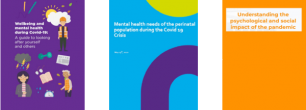
Preventing suicide together
Suicide prevention is everyone’s business. The National Suicide Prevention Alliance (NSPA) is an alliance of public, private and voluntary organisations in England who care about suicide prevention and are willing to take individual and collective action to reduce suicide and self-harm, and support those bereaved or affected by suicide.

NSPA Conference 2024
Our 10th annual conference ‘The New Suicide Prevention Strategy and 10 years of the NSPA: Where do we go from here?’ took place on 31st January at Kia Oval, London.
You can find out more about the event here.

Lived Experience Network
With our lived experience network we are striving to ensure that suicide prevention activity across the country is underpinned by lived experience; and that lived experience is valued, respected and seen as legitimate.

Our resources hub
Our library of resources draws together a wide range of information and materials for professionals and practitioners working in suicide prevention or supporting those affected by suicide.

Join the NSPA
Become part of our network of more than 1,700 organisations and individuals. Find out more on how you can benefit from joining the alliance here.